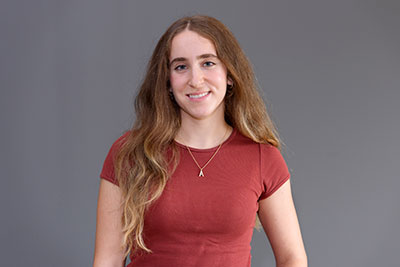Scientists have identified four different subtypes of autism.
Researchers at Princeton University and the Simons Foundation believe that a step forward in understanding autism’s genetic underpinnings could lead to better personalised care.

Princeton PhD student Aviya Litman says her study has connected four subtypes of autism to “distinct underlying biology”
The scientists used data from more than 5,000 children in Spark, an autism study funded by research group the Simons Foundation.
They then used computer modelling to group the children based on their traits.
The four subtypes
The groups they identified include those with social and behavioural challenges, another described as mixed autism with developmental delay, a third with moderate challenges, and a fourth characterised as broadly affected.
Aviya Litman is a Princeton PhD student and co-lead author of the study. She said the researchers were able to connect the different presentations to “distinct underlying biology”.
Children in the broadly affected group have extreme and wide-ranging challenges. They showed the highest proportion of de novo genetic mutations. These are mutations that an individual does not inherit from either parent.
In addition, only those in the mixed autism and developmental delay group showed an increased likelihood of carrying rare genetic variants.
Argument for splitting an autism diagnosis
Earlier this year, autism researcher Dr Paul Whiteley wrote of how the autism diagnosis should be split. He argued for the introduction of a ‘profound’ category for those more severely affected.
Whiteley’s article, penned with support from several colleagues, argued that the condition has a wide range of causes, presentations and trajectories.
In an email, he wrote that there are “probably more than four subgroups of autism”, when causes, developmental trajectory and other health problems that can occur alongside the condition are considered.
Tailored care
He said the new research expands increasing moves to categorise the massive variety in autism and create more tailored care for different groups.
The new research appeared in Nature Genetics.
Related:
- Medic calls for profound autism category
- Researchers want better dual diagnosis
- Blog: What has changed in the field of early diagnosis and intervention for ASC
- Young autistic people create diagnosis resources
- Children who regress can miss diagnosis
- Some people overcome autism, says doctor
Published: 18 August 2025















